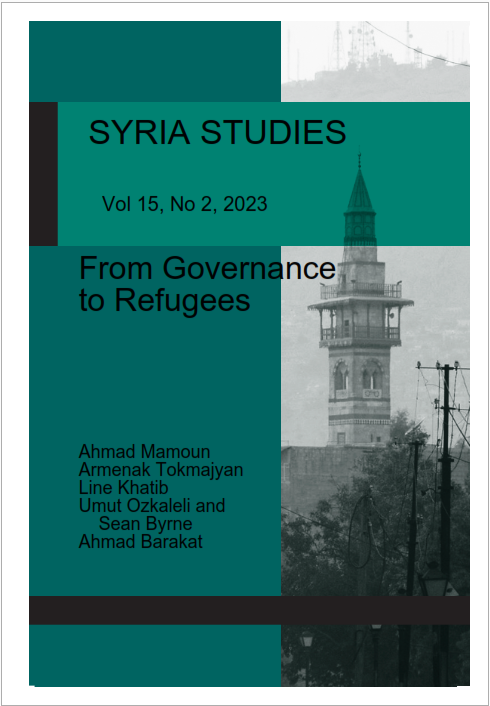Inside and Outside Government and Governance Experience of Syrian Refugees
Main Article Content
Abstract
This article locates the meaning of two oppositional entities, namely the Syrian Interim Government (SIG) and Local Councils (LCs), from the perspective of refugees living in Gaziantep Turkey. The deliberate and strategic labeling of an oppositional entity as ‘government’ may have been designed to present the Syrian and international audience with an alternative government even though, in many ways, the SIG lacked ‘governmental’ characteristics in its early beginnings. While the SIG was formed outside, LCs flourished inside Syria. Refugee voices indicate that people expect an alternative governing structure to emerge from inside Syria and don’t see an outsider entity as a legitimate power. The article builds on concepts of government, governmentality, and rhizomatic social theory. Through the experiences and perceptions of refugees, the article draws comparisons between LCs and the SIG to analyze how oppositional bodies may shape the progression of ongoing protracted conflicts.
Keywords: Civil Wars, Local councils, Syrian Interim Government, Refugees, Government, Governmentality
Article Details

This work is licensed under a Creative Commons Attribution 4.0 International License.
Authors who publish with this journal agree to the following terms:- Authors retain copyright and grant the journal right of first publication with the work simultaneously licensed under a Creative Commons Attribution License that allows others to share the work with an acknowledgement of the work's authorship and initial publication in this journal.
- Authors are able to enter into separate, additional contractual arrangements for the non-exclusive distribution of the journal's published version of the work (e.g., post it to an institutional repository or publish it in a book), with an acknowledgement of its initial publication in this journal.
- Authors are permitted and encouraged to post their work online (e.g., in institutional repositories or on their website) prior to and during the submission process, as it can lead to productive exchanges, as well as earlier and greater citation of published work (See The Effect of Open Access).
